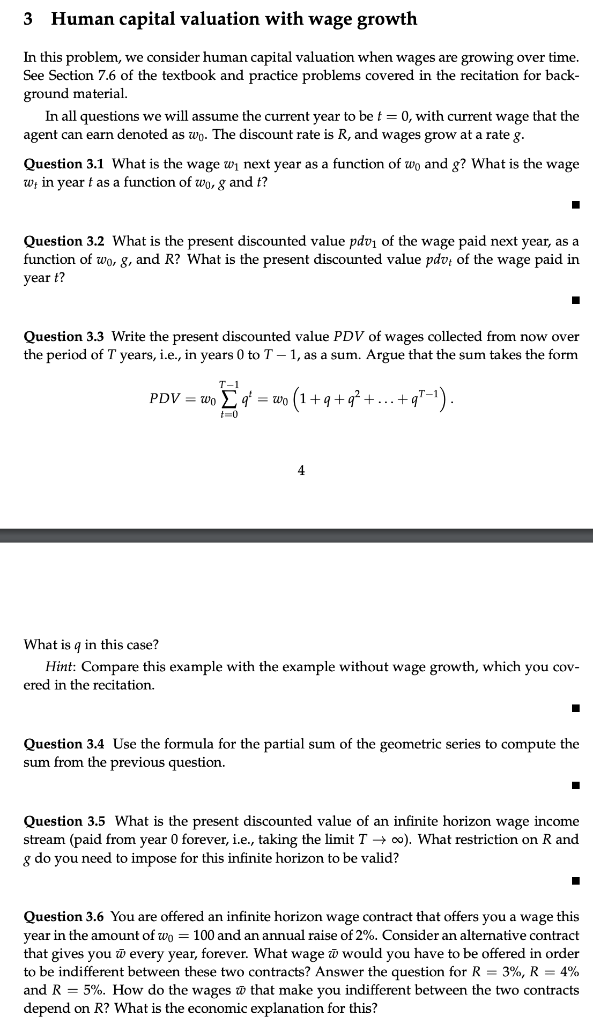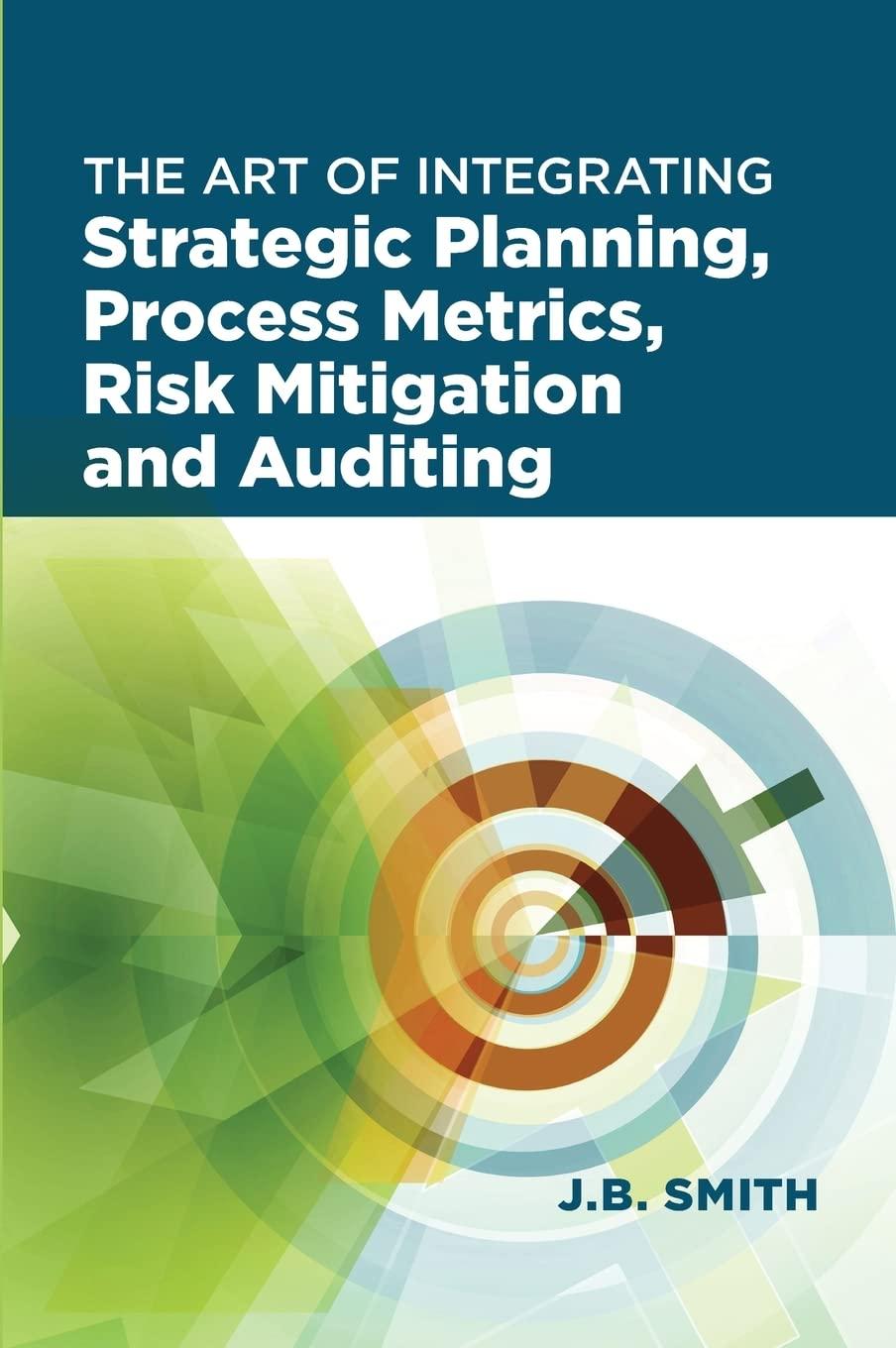
3 Human capital valuation with wage growth In this problem, we consider human capital valuation when wages are growing over time. See Section 7.6 of the textbook and practice problems covered in the recitation for background material. In all questions we will assume the current year to be t=0, with current wage that the agent can earn denoted as w0. The discount rate is R, and wages grow at a rate g. Question 3.1 What is the wage w1 next year as a function of w0 and g ? What is the wage wt in year t as a function of w0,g and t ? Question 3.2 What is the present discounted value pdv1 of the wage paid next year, as a function of w0,g, and R ? What is the present discounted value pdvt of the wage paid in year t ? Question 3.3 Write the present discounted value PDV of wages collected from now over the period of T years, i.e., in years 0 to T1, as a sum. Argue that the sum takes the form PDV=w0t=0T1qt=w0(1+q+q2++qT1). What is q in this case? Hint: Compare this example with the example without wage growth, which you covered in the recitation. Question 3.4 Use the formula for the partial sum of the geometric series to compute the sum from the previous question. Question 3.5 What is the present discounted value of an infinite horizon wage income stream (paid from year 0 forever, i.e., taking the limit T ). What restriction on R and g do you need to impose for this infinite horizon to be valid? Question 3.6 You are offered an infinite horizon wage contract that offers you a wage this year in the amount of w0=100 and an annual raise of 2%. Consider an alternative contract that gives you w every year, forever. What wage w would you have to be offered in order to be indifferent between these two contracts? Answer the question for R=3%,R=4% and R=5%. How do the wages w that make you indifferent between the two contracts depend on R ? What is the economic explanation for this? 3 Human capital valuation with wage growth In this problem, we consider human capital valuation when wages are growing over time. See Section 7.6 of the textbook and practice problems covered in the recitation for background material. In all questions we will assume the current year to be t=0, with current wage that the agent can earn denoted as w0. The discount rate is R, and wages grow at a rate g. Question 3.1 What is the wage w1 next year as a function of w0 and g ? What is the wage wt in year t as a function of w0,g and t ? Question 3.2 What is the present discounted value pdv1 of the wage paid next year, as a function of w0,g, and R ? What is the present discounted value pdvt of the wage paid in year t ? Question 3.3 Write the present discounted value PDV of wages collected from now over the period of T years, i.e., in years 0 to T1, as a sum. Argue that the sum takes the form PDV=w0t=0T1qt=w0(1+q+q2++qT1). What is q in this case? Hint: Compare this example with the example without wage growth, which you covered in the recitation. Question 3.4 Use the formula for the partial sum of the geometric series to compute the sum from the previous question. Question 3.5 What is the present discounted value of an infinite horizon wage income stream (paid from year 0 forever, i.e., taking the limit T ). What restriction on R and g do you need to impose for this infinite horizon to be valid? Question 3.6 You are offered an infinite horizon wage contract that offers you a wage this year in the amount of w0=100 and an annual raise of 2%. Consider an alternative contract that gives you w every year, forever. What wage w would you have to be offered in order to be indifferent between these two contracts? Answer the question for R=3%,R=4% and R=5%. How do the wages w that make you indifferent between the two contracts depend on R ? What is the economic explanation for this







